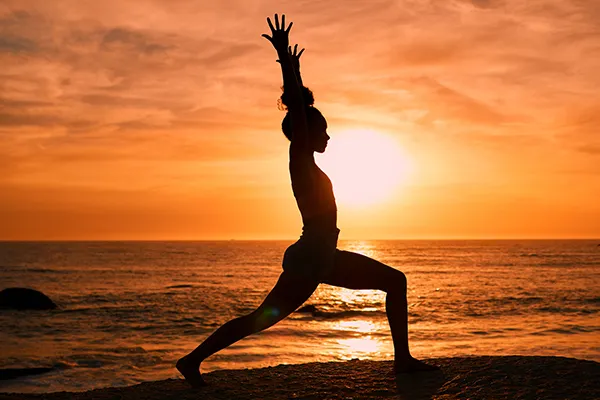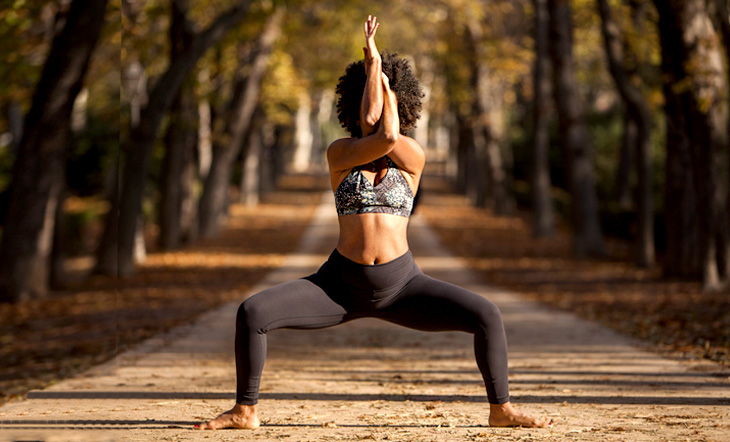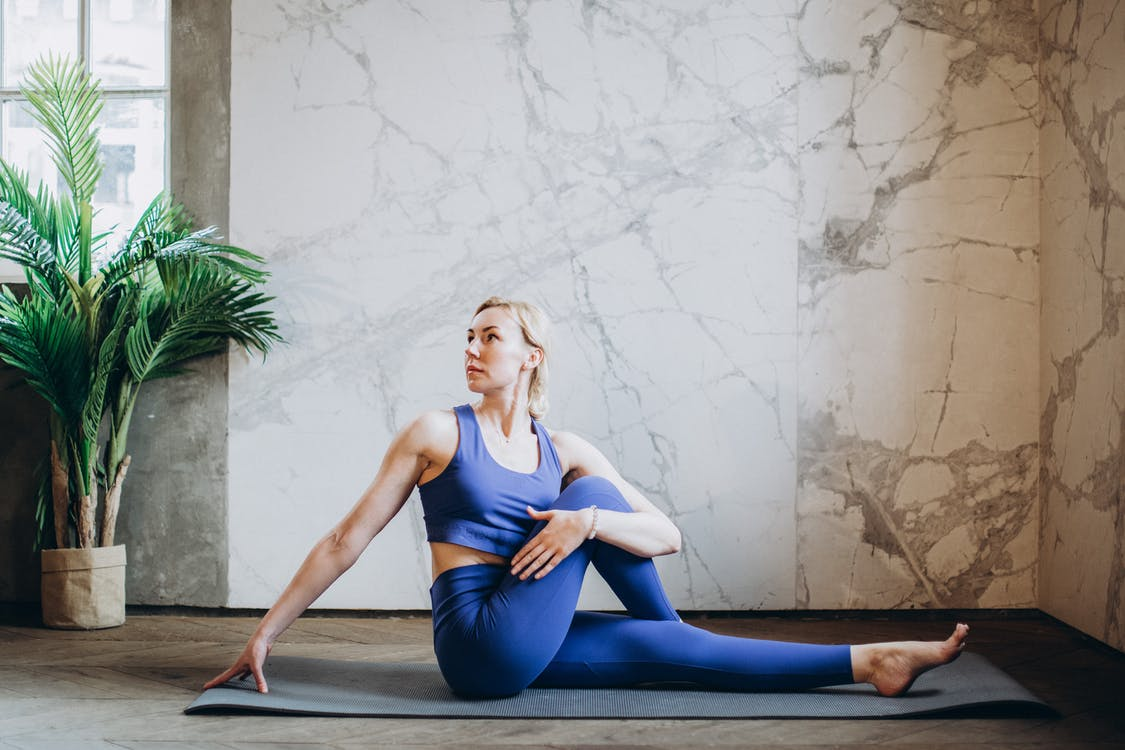Considering the best time for your yoga practice is crucial for maximizing its benefits. As a seasoned fitness expert, I’ve seen the impact of timing on the effectiveness of yoga sessions. Whether you’re a morning person or prefer evening tranquility, the right time can elevate your practice to new heights.

Your yoga journey is unique, and finding the optimal time to unroll your mat can make all the difference. With years of experience guiding individuals like you, I understand the significance of aligning your practice with your rhythms. Let’s find out the factors that influence the best time for yoga, helping you harness its full potential.
Contents
What Is The Best Time For Yoga?
The best time for yoga largely depends on your personal goals, schedule, and the type of yoga practice you’re engaging in. Generally, yoga can be practiced at any time of the day, but certain periods are considered more beneficial for specific reasons.
1. Morning Yoga
Practicing yoga in the morning, particularly at sunrise, is often considered ideal for several reasons. Morning yoga helps to awaken the body, boost energy levels, and set a positive tone for the rest of the day. This time is also associated with the sattvic qualities of purity and peace, making it conducive for spiritual practices. Engaging in yoga early in the day can help enhance focus and clarity, allowing for a mindful approach to the day’s tasks.
2. Evening Yoga:
Evening yoga sessions can also be highly beneficial, especially for those who find it challenging to practice in the morning. Practicing yoga in the evening can help release the stress and tension accumulated throughout the day, promoting relaxation and preparing the body for a restful night’s sleep. Evening practices can include more calming and grounding poses, such as forward bends and gentle twists, which aid in digestion and relaxation. This time is particularly suitable for practices that focus on relaxation and meditation, helping to calm the mind and ease into the night.

3. Personal Preference and Lifestyle:
Ultimately, the best time for yoga is when it fits naturally into your lifestyle and aligns with your personal goals. Some individuals may find a midday practice revitalizing, helping to break up the day and refresh the mind and body. Others might integrate short yoga sessions throughout the day as a way to maintain balance and focus. Listening to your body and understanding your daily schedule’s constraints and opportunities will guide you to the most appropriate and beneficial time for your yoga practice.
Benefits Of Practicing Yoga In The Morning
Starting your day with yoga can set you up for a successful day in a number of ways:
-
Energize and Increase Focus: Yoga gets your blood flowing and wakes up your muscles, leaving you feeling more energetic throughout the morning. The focus on breathwork can also improve mental clarity and concentration.
-
Reduce Stress and Improve Mood: Yoga poses and meditation can help lower cortisol levels, the stress hormone, and promote the release of endorphins, which have mood-boosting effects.
-
Improve Flexibility and Mobility: As you sleep, your body stiffens up. Gentle morning yoga stretches help loosen tight muscles and improve your range of motion, which can benefit your posture and daily activities.
-
Boost Metabolism and Digestion: Certain yoga postures, particularly twists, can stimulate your digestive system and get things moving in the morning. Starting your day with yoga may also give your metabolism a slight nudge.
-
Create a Positive Routine and Self-Care: Taking time for yourself first thing in the morning sets a positive tone for the day. Yoga can become a form of self-care that helps you feel centered and grounded.
Benefits Of Yoga In The Afternoon
An afternoon yoga practice can be a powerful mid-day reset button, offering a range of benefits to combat the afternoon slump and enhance your well-being:
-
Combat Afternoon Slump and Boost Energy: Feeling tired after lunch? Yoga gets your blood flowing again, gently warming up muscles and increasing circulation. This can leave you feeling more energized and focused for the rest of the day.
-
Improved Focus and Concentration: The afternoon can be prime time for mental fatigue. Yoga with its emphasis on breathwork can help clear your mind and sharpen your focus, allowing you to tackle tasks with renewed concentration.
-
Reduced Stress and Tension: Let go of the built-up tension from the morning’s work or errands. Yoga poses and mindful breathing can help lower stress hormones and calm your nervous system, promoting a sense of peace and relaxation.
-
Improved Flexibility: By mid-day, your body is generally warmer and looser than in the morning. This makes it a great time to focus on improving flexibility through yoga stretches. You might find you can achieve deeper postures or hold them for longer.
-
Prepares Body and Mind for a Restful Sleep: A well-designed afternoon yoga practice can help ease tension and quiet the mind, preparing you for a better night’s sleep. This is especially helpful if you struggle with winding down after a busy day.
-
Appetite Control and Digestion: Yoga can stimulate the digestive system, which can be beneficial a few hours before dinner. This can also help regulate your appetite and prevent overeating later.
Benefits Of Practicing Yoga In The Evening
When you choose to practice yoga in the evening, you’re setting yourself up for a serene transition from your busy day to a peaceful night. Here are the benefits of incorporating evening yoga into your routine:

- Relaxation and Stress Relief: Evening yoga helps you release the tension accumulated throughout the day and calm your mind before bedtime.
- Better Sleep: By winding down with yoga before bed, you can improve your sleep quality and enhance your overall well-being.
- Improved Flexibility: Practicing yoga in the evening allows your muscles to be more warmed up from the day’s activities, making it easier to deepen your stretches and poses.
- Mental Clarity: Engaging in an evening yoga session can help you clear your mind and focus on the present moment, promoting mental clarity and inner peace.
- Postural Alignment: Sitting at a desk for long hours can lead to postural imbalances. Evening yoga poses can counteract the effects of prolonged sitting and improve your posture.
Yoga For Your Dosha Time
Understanding your Ayurvedic dosha can guide you in choosing the best time for your yoga practice. Embrace your unique constitution and align your yoga routine accordingly to optimize your well-being. Here’s a brief overview based on your dosha type:
Kapha-Dominant Individuals
- Optimal Practice Time: Early Morning or Evening (6-10 am or pm)
- Characteristics: Stability, Groundedness, Earth, Water Elements
- Ideal Activities: Vigorous Exercise, Dynamic Yoga, Outdoor Workouts
Vata-Dominant Individuals
- Optimal Practice Time: Early Evening (2-6 pm)
- Characteristics: Creativity, Flexibility, Inspiration, Air Element
- Recommended Activities: Yoga, Meditation, Creative Pursuits
- Optimal Practice Time: Midday or Late Afternoon
- Characteristics: Intensity, Focus, Fire Element
- Suitable Activities: Yoga Practices that Promote Cooling and Balance
Frequently Asked Questions
How can I align my yoga practice with my Ayurvedic dosha?
Aligning your yoga practice with your Ayurvedic dosha involves understanding your dominant dosha (Kapha, Vata, or Pitta) and choosing yoga poses and routines that balance your dosha. For example, Kapha-dominant individuals may benefit from an energizing flow, while Vata-dominant individuals may find grounding poses helpful.
What are the ideal practice times for different doshas?
For Kapha-dominant individuals, early morning practices are energizing. Vata-dominant individuals may prefer a midday practice for balance, while Pitta-dominant individuals could benefit from evening practices to cool down.
How can adjusting my yoga routine based on my dosha benefit me?
Aligning your yoga routine with your dosha can help balance your body and mind, improve overall well-being, and enhance the benefits of your practice. By harmonizing with your dosha characteristics, you can optimize the effects of yoga on your health.

Hello, I’m Ravindra. Over the years, I’ve immersed myself deeply into the world of fitness and health, transforming both my body and mind. Writing has allowed me to share my journey, insights, and expertise with those just starting out and seasoned fitness enthusiasts alike. Beyond just routines and diets, I believe in inspiring others to adopt a holistic approach to well-being.
